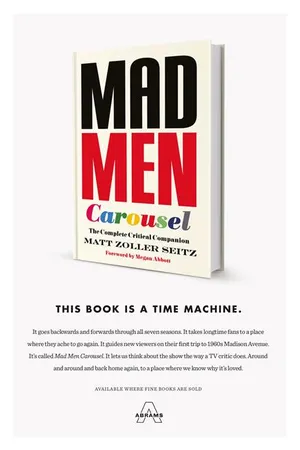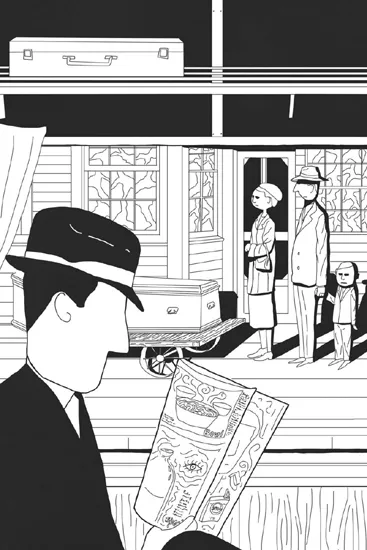![]()
Season 1
Enough
Spare me the looking backward with longing,
The searching the memory with regret.
Relieve me of the angst and woe.
Has it been enough suffering to pay
The price for the wrongs and imperfections?
Life encompasses its own hell.
There need be no other.
We always find what we seek
Regardless of the guise.
We pay our dues at the door, each one we enter
Looking for something somewhere
When we need only find ourselves.
What anguish and torment we invite
And willingly endure
Thinking we are accomplishing something
That we were meant to do,
Carrying an outdated guidebook,
Belatedly finding the map.
Burdened with a twisted sense of duty,
Lifted with a truer sense of joy,
We journey ceaselessly on
Charting a course that brings us to an end
Somewhere midst our first selves and what we have become,
A weary mixture of all that life has brought us.
Yet do we need to feel useless, ineffectual
When we have tried so hard to live and be,
To become something more than when we began?
—MARTHA ORTON
![]()
SEASON 1 / EPISODE 1
“Smoke Gets in Your Eyes”
Written by Matthew Weiner
Directed by Alan Taylor
It’s Toasted
“Smoke Gets in Your Eyes” starts with a definition of “Mad Men.” The white-on-black title screen tells us the term was coined in the late 1950s to describe the advertising executives of Madison Avenue.
After a pause it adds, “They coined it.”
“Smoke Gets in Your Eyes”1 not only creates a world, sets the gears of a story in motion, and introduces us to the show’s hero, adman Donald Draper (Jon Hamm2)—it tells us that everything on-screen is about control.
Control of money. Control of power. Control of information. Control of the image.
The tale is told in accordance with the rules of the society in which it takes place. Screenwriter and series creator Matthew Weiner and director Alan Taylor are controlling storytellers. They dole out facts about the ad agency Sterling Cooper and its employees on their own timetable. Even though we get to observe intensely private moments, we’re always on the outside looking in. Our peeks behind the curtain are not comforting. They confirm that the powerful decide what we see, how we see it, and what that glimpse will cost us.
The portrait of Don is the best example of the way Mad Men reveals itself. He’s one of the most powerful characters on the show, but we can’t access his interior. We gather from the shot of his Purple Heart and the sound of bombs bursting as he drifts into a nap that he’s a veteran, but we don’t know why it’s important that we know this. When we get to the end of the episode and learn that Don has a wife and children and a house in Ossining, New York,3 it’s a surprise, based on his behavior.4 But even though we surmise that Don must not be satisfied at home—otherwise, why would he have a mistress?—his warm smile at his as-yet-unnamed wife and kids confounds that assumption. Who is Donald Draper? We don’t know yet. When will we find out? When the show is ready to tell us. The details aren’t filled in, but are slowly unveiled.
We learn a bit about the show’s central location, Sterling Cooper, a small but respected ad agency whose fortunes are built mainly around one client, Lucky Strike cigarettes. We also get a sense of the society that surrounds Madison Avenue: an upper-middle-class to wealthy social sphere, vigorous and arrogant, with domestic satellites throughout Manhattan and the tristate area. It is a world ruled by straight white men who are comfortable giving orders to black men and to women (in the workplace and in the domestic sphere) and who admit outsiders selectively, and only for profit. These men are complacent about being on top. They like for things to be done a certain way, and they explain what, exactly, that way is, in language that leaves no room for challenge.
There are hints of disquiet and dissatisfaction, mainly in scenes with the Jewish department store manager Rachel Menken (Maggie Siff5), whose wealth gives her the power to rattle Don’s sexist assumptions; and Don’s bohemian girlfriend, Midge (Rosemarie DeWitt6), who digs Don’s magnetism and creativity but seems unimpressed by his status. And there are moments here and there that make easy jokes about antiquated technology and attitudes, such as when office manager Joan Holloway (Christina Hendricks7) describes an IBM Selectric typewriter8 as “simple enough for a woman to use.”
But for the most part, “Smoke Gets in Your Eyes” denies us the sorts of comforting anchors that many period stories provide. There are no characters who represent the twenty-first-century, college-educated, bourgeois American’s perspectives on race, feminism, economic inequality, or anything else.
The new secretary, Peggy Olson (Elisabeth Moss9), exemplifies the episode’s storytelling approach. It places viewers on the outside. Most TV pilots have a character like Peggy: an audience surrogate who gives other characters an excuse to deliver exposition. But not many go so far out of their way to make the “surrogate” character an emblem of what it means to be relegated to the outer boroughs of the American Dream. Peggy’s presence reminds us that while Don feels somewhat detached, even alienated, from the world he seems to rule, this is but another example of Don’s privilege. Peggy doesn’t just feel like an outsider, she is one: a woman in a man’s business.
Peggy arrives from the outside, knowing only that this is her new workplace. It’s a white-collar cattle pen, with boxy desks and featureless columns and walls largely devoid of art. Secretaries type away under rectangular light panels. Switchboard operators connect the firm to the outside world. [END. 1] As Joan, the boss of the secretarial pool, takes Peggy (and us) on a tour [END. 2], she describes a male-supremacist workspace, and a job that’s equal parts nanny, maid, mother, and concubine to men who act like bosses even when they aren’t. She also lays out what she considers an ideal future. She says if Peggy, who currently lives in Brooklyn, makes the right moves, within a year she’ll be in the city “with the rest of us,” and if she’s really smart, she’ll be out in the country and not have to work at all.
Also: She needs to show more leg.
Joan’s not just telling Peggy how to do her job. She’s telling Peggy how she’s expected to present herself to men, appeal to men, and live her life in service to men, while pursuing dreams that were defined by a male-dominated society, with a mighty assist from fantasy-enablers like Don.
The most unnerving moments in “Smoke Gets in Your Eyes” make it seem as though being a woman on Madison Avenue circa 1960 was to feel constantly scrutinized, rated, and otherwise dehumanized by men. The junior accounts man, Pete Campbell (Vincent Kartheiser10), who’s about to get married but ends up wheedling his way into Peggy’s bed at the end of “Smoke,” presumes that Peggy is a concubine or a concubine-in-training. He says he’s looking forward to taking first crack at the female entertainer at his bachelor party because “it’s rumored that she took down more sailors than the USS Arizona.” In the scene where Pete peals, “Ready to sweet-talk some retail Jews?” he refers to Peggy as Don’s “little friend” and asks her if she’s “Amish or something.” (“I’m from Brooklyn,” she replies.)
At Joan’s urging, Peggy visits a gynecologist. He lights up a cigarette, tells her to relax, and thumps her belly as if testing the ripeness of a water-melon. As we hear him ask Peggy if she’s there to get on the Pill,11 we’re looking at a close-up of his hand sliding into a latex glove—an image redolent of an older form of birth control and a different method of penetration. The doctor shockingly betrays Joan’s confidence, mock-worries that once Peggy gets on the Pill she’ll become a “strumpet,” and warns her not to turn into “the town pump” to “get your money’s worth.” A couple of minutes into this already uncomfortable scene, there’s a cut to a wide shot of the doctor leaning into Peggy as she turns her head in the direction of the camera. The new vantage point makes it look as if Peggy is in the preferred birth-giving position, circa 1960. Supine, subservient, helpless.
“I really am a very responsible girl,” Peggy says, in a faraway voice.12
Everywhere you look, men are making jokes about “having” women, as they might have lunch or drinks. Whether the women want to be had is immaterial. It’s all part of a script that men and women know by heart. At Pete’s bachelor party, a woman coiffed like Marilyn Monroe slinks onstage in a Gentlemen Prefer Blondes dress, removing a black glove to organ music. The entire setting is theatrical, and not merely because it is a cabaret. The waitresses and the performer are playacting a certain ideal of femininity. The men are playacting the rituals of moneyed urban masculinity. At one end of the table sits the closeted gay art director Salvatore Romano13 playacting the straight young tomcat on the prowl. “Do you have a girlfriend, Salvatore?” Pete asks him. “Come on, I’m Italian,” he says, an ad-libbed nonanswer that leaves the evening’s script undisturbed.
A lot of the dialogue in “Smoke” conflates sex and ownership, women and property. Ken Cosgrove14 shows up at Pete’s party with employees from a nearby Automat; “You press a button and they come out,” says another of Pete’s coworkers, Paul Kinsey.15 When Don takes umbrage at Pete’s treatment of Peggy and cautions him to watch his mouth, Pete assumes that Don and Peggy are sleeping together.16 It’s not true, but we’re given to understand that it’s not beyond the realm of possibility: In this world, dominance and control are masculine, compassion and surrender are feminine, and that’s just how it is.
Although the dialogue sketches the characters in brisk strokes, it’s never purely functional. It returns again and again to control, and what it means to be “in control,” and how it feels to be controlled by someone else, and how words and images can be deployed to control how people perceive themselves, and the world.
Consider the agency’s condescension to Rachel Menken.17 It’s about controlling a story and an image. Rachel wants to change the store’s image because its narrative has grown stale. Don is pitching a campaign based on Sterling Cooper’s preconceived notions of what Menken’s Department Store is, and (to their mind) always will be. When Rachel balks, Don tries to shut her down by invoking her father. Rachel parries by telling Don and his colleagues that her father no longer runs the store because they just had their lowest sales year—a fact that proves the old story and image aren’t working. Pete senses that the agency is losing control of the meeting’s narrative and rides to what he thinks is Don’s rescue. Lighting Rachel’s cigarette, he asks why she came to Sterling Cooper when there are “dozens of other agencies better suited to your needs,” code for “firms that employ Jews.” Translation: We aren’t here to change the story or the image, lady, and if that’s what you want, you’d better ask someone else to give it to you.
“If I wanted some man who was from the same village as my father to manage our accounts, I would have stayed where I was,” Rachel says. Her unflappability would be impressive even if she weren’t the only woman in the room. But the Sterling Cooper boys keep pushing for the store to use coupons until Rachel says that she doesn’t want them, she wants something besides coupons, she wants “your people, Mr. Draper”—th...

